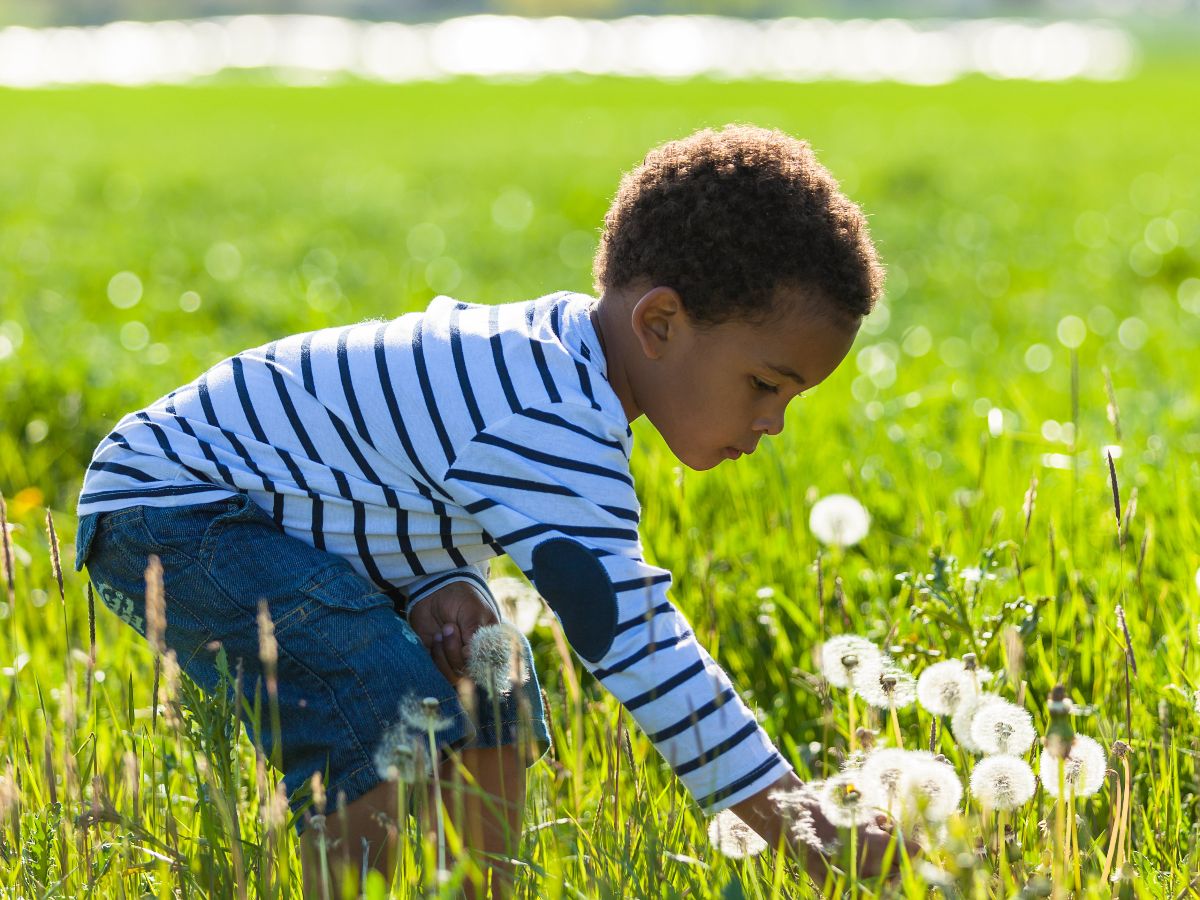Nature Play Days is almost here! If you’re not familiar, Nature Play Days is a week-long event in June (June 8–16 this year) that aims to get as many families outside doing free, nature-based activities in the community as possible. Nature Play Days is put on by the Indiana Children and Nature Network and administered locally by BY5. There will be close to 60 Nature Play Days activities going on in Delaware County during the week.
Since Nature Play Days is so close, it’s a great time to familiarize yourself with the benefits of nature play. Below are a few ways that being outside can help children grow, develop, and thrive.
1. School gardens positively impact children's learning and behaviors.
Gardening has myriad benefits for children: it gives them a chance to interact positively with local ecosystems, helps them understand the food chain, and research shows it can also positively impact test scores. If you have a garden near you, invite your kids to help dig—the benefits of their experience will go far!
2. Children benefit from appropriate risk-taking during outdoor play.
Risk-taking is a part of life, and the ability to make independent decisions about one’s actions is key for success in school, work, and life. Letting children take risks in the context of a natural environment helps their development of risk assessment immensely.
3. Nature reduces stress in children.
One 2003 study from Cornell showed that even having a view of nature helped reduce stress in highly-stressed children. When children are allowed to play in green space, stress levels went down further.
4. Direct experience in nature contributes to multiple developmental capacities.
According to Dr. Stephen R. Kellert, who wrote Building for Life: Designing and Understanding the Human-Nature Connection, “Play in nature, particularly during the critical period of middle childhood, appears to be an especially important time for developing the capacities for creativity, problem-solving, and emotional and intellectual development.” Exposing children to green spaces helps their brains for life.
5. Childhood experiences in nature are tied to adult attitudes toward the environment.
For adults concerned about the environment, taking a young child into nature on a regular basis may help. Children who are exposed to places like woods, walking trails, and other natural spaces are more likely to have positive attitudes toward the environment as adults.

